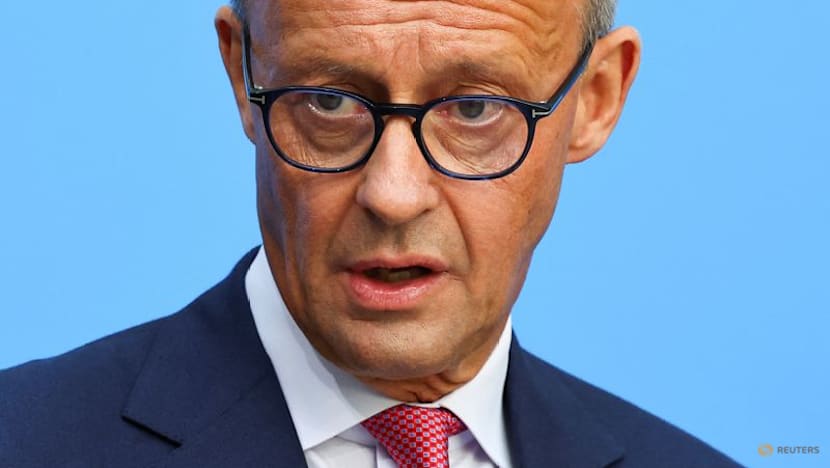Germany’s Merz urges EU to use frozen Russian assets to fund Ukraine through interest-free loan

BERLIN: German Chancellor Friedrich Merz on Thursday (Sep 25) called for the European Union to unlock up to €140 billion (US$164 billion) in frozen Russian assets to finance Ukraine’s war effort, marking the first time Berlin has openly backed such a move.
In an editorial published in the Financial Times, Merz proposed issuing an interest-free EU loan that would be guaranteed initially by member states and later backed by the bloc’s long-term budget from 2028. The assets would remain frozen until Russia pays reparations for the war, he said.
“We need a new impetus to change Russia’s calculations,” Merz wrote. “Now is the moment to apply an effective lever that will disrupt the Russian president’s cynical game of buying time and bring him to the negotiating table.”
PRESSURE ON MOSCOW
The plan, which could dominate an informal EU summit in Copenhagen next week, would provide long-term support for Kyiv without directly confiscating Russian state assets — a step many governments and the European Central Bank still regard as a legal red line.
Finance Minister and Vice Chancellor Lars Klingbeil also voiced support for the idea, saying Europe needed to exert maximum pressure on Russian President Vladimir Putin to end the war.
“That is why it is right to make greater use of frozen Russian assets. Germany is prepared to explore new avenues that are legally possible and responsible,” Klingbeil said.
SHIFT IN GERMAN POSITION
Until now, the EU has used only the interest generated from the roughly €210 billion held in a Belgian depository since Russia’s invasion of Ukraine in February 2022.
Merz’s editorial represents a shift for Germany, which has previously raised concerns about the legality of any wider use of the frozen funds.
“I propose that, at the European Council at the end of October, we give the mandate to prepare this instrument in a legally secure manner,” Merz said, adding that disbursements should be made in tranches and decisions on arms purchases should be taken jointly by Kyiv and EU member states.
Germany is the EU’s largest economy and Ukraine’s second-biggest military supporter after the United States. But with US backing less certain under President Donald Trump, European capitals have been weighing how to shoulder more of the burden.














